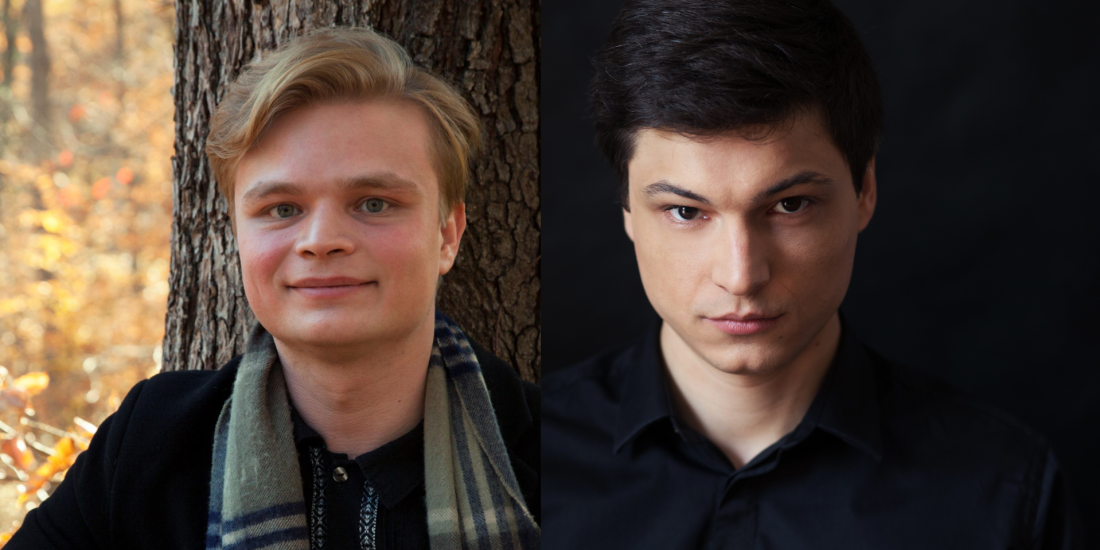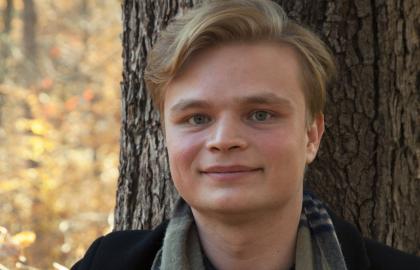How do you feel about performing at Bozar?
Lev Sivkov: It is a great joy. I feel honoured, flattered and full of responsibility.
János Palojtay: I played already at Bozar in 2018, in the context of the Building Bridges project. András Schiff selects each year 3 pianists around the world. This gave me the wonderful opportunity to have a solo recital at Bozar. I have very nice memories of this concert. I am very much looking forward to return to that wonderful hall.
There are four composers on your programme: Kodály, Grieg, Chausson and Schumann. Which journey do you want to take us on?
JP: I have known Lev for a long time. He is always searching for new repertoire, and finds treasures that almost nobody plays. But of course, we also wanted to play pieces that might be more familiar to the audience. In a way, Grieg and Schumann make a pair: they both studied in Leipzig, Schumann influenced Grieg, and both pieces are in the tonality of A – starting in minor and ending in major.
At the centre of the programme, Kodály and Chausson also make a pair: it is extremely rare to see them programmed in concert halls. There are only twelve years between the birth of these two pieces. Both are experimenting with new harmonies, still under the influence of the romantic era, but obviously searching for new ways of expression.
LS: I’m very impressed by Ernest Chausson’s cello piece, which not many listeners seem to know. So I’m trying to perform this gorgeous music a bit more often. I also never want to miss the opportunity to play Zoltán Kodály with Mr. Palojtay, which he plays outstandingly! In my opinion, the folk motives of Kodály correspond very well with Grieg’s conception of composing since, as you know, for Grieg relied on Norwegian folk melodies and they inspired him when creating. On the other hand Chausson’s lyricism and long melodic lines go well with the romanticism and nostalgia of Schumann’s Fantasiestücken.
Do you have a favourite classical work?
JP: No. Or I have several. I think if you are working every day in your garden for 30 years, you don't have a favourite flower or tree, you have a close but different relationship to each one.
LS: I love music in general. But I would like to point out Carl Nielsen’s Symphony No. 4.
How does it feel to be chosen by Jean-Guihen Queyras and Alexandre Tharaud for this Bozar Next Generation concert?
LS: I’m a big fan of the duo Jean-Guihen Queyras and Alexandre Tharaud. Their interpretation of Poulenc’s Cello Sonata is superb. I am very grateful that they gave us the opportunity to perform.
JP: Of course it feels nice. At the same time, when we took a lesson from Jean-Guihen Queyras, it meant even more to me. Besides, it was obvious that he liked what he heard. We could still learn a lot from this wonderful musician.
What is your biggest dream?
JP: I wish classical music concerts would be less ceremonial. I would be delighted if we could find a form of performance that would reduce the distance between artists and audience. They could talk to each other. Clothes, all sorts of external aspects would be less important, and there would be room for concentration and real listening. I don't mind if this happens in the Carnegie Hall or in a small village anywhere in the world.
LS: I've been working at the Opernhaus Zürich for over five years as the main cellist. My dream there would be, during my lifetime, to perform all of Richard Strauss’ operas. I guess it’s unachievable.


